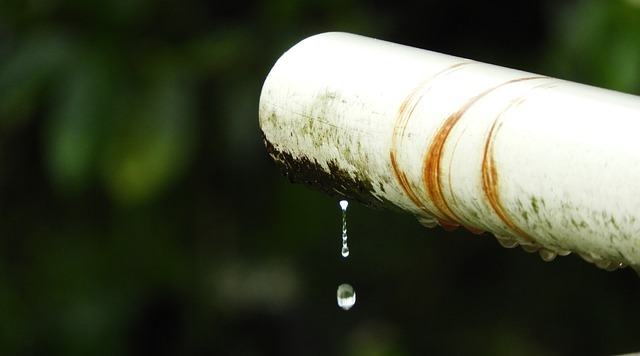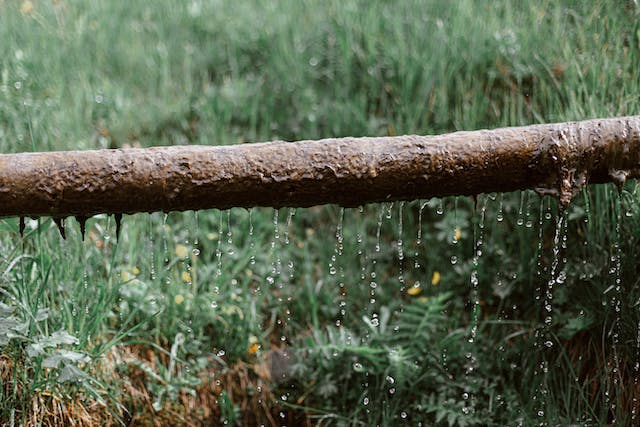Water supply and drainage are two essential systems in a household. These ensure a healthy and comfortable life for the people living in a house. However, if any leakage occurs from any of these water-based systems, it can be stressful for the residents, especially with water flooding all over the place. For a homeowner, a water leak is one of the worst nightmares. Did you know that each year, a typical home can lose around 2,000 to 20,000 gallons of water? Yes, and this is due to leaks, which lead to a significant waste of water and money, making your home run less efficiently.
With this, early water leak detection can save you from huge problems and lots of stress. It’s because when you detect the exact spot of leakage on a pipe, you can have it repaired very fast, putting an end to the issue immediately. Some leaks are easy to discover, such as dripping faucets and showerheads. However, some leaks can go undetected for months to years. Sometimes, you will not know that some of your pipes at home are leaking unless you have them checked frequently.
If you are suspecting that there might be water leaks at home, or you want to be prepared and know how to detect leaks, you’re in the right place. Today, we are giving you tips for solving leak detection problems.
Common Causes of Leaks in Households
Before we give you the tips, let us know first the common causes of leaks in households:
Broken Seals
When appliances are installed in your home, the contractor placed seals around all water connectors. You can also find seals in other places, such as on the door of your dishwasher. However, as your appliances age, the seal may wear out or break. Therefore, if you notice any condensation on your appliance or puddles near it, you may have a broken seal. Be sure to consider Leak Detection options.
Corrosion
In time, your plumbing system will age, rust, and other forms of corrosion may damage the pipes. If you see any discoloration or warping on the pipes, it’s time to have a plumber assess the issue right away. If the plumbing system you have at home is old, you should also consider replacing the pipes that are at high risk of corrosion with newer models.
Clogged Lines
Clogged drains can also cause a lot of inconvenience at home. Some of them can lead to overflowing or, worstcan cause pipes to burst. For example, if there are obstructions in your gutters or handler drain pans, it can lead to serious water damage. Therefore, it’s important to always keep the gutters and HVAC system clean to prevent clogs that may lead to leaks.
Excess Water Pressure
Having high water pressure is nice, but excessive and uneven pressure can cause damage to pipes. Most pipes and faucets at home can only handle a specific level of water pressure. This means that any extra pressure can cause leaks. If you think that your water pressure at home is too strong, it’s better to have a professional measure the pressure.
Damaged Pipe Joints
The weakest point in a line is usually where the pipes connect. Over time, these joints can deteriorate and cause leaks. The downside is that most pipe joints are not visible. If you notice noisy pipes that make a ticking or banging noise, especially when you turn on the hot water, there’s a high chance that your pipe joints are under substantial pressure. With this, it’s essential to have a plumber evaluate your system once every year.
Loose Water Connectors
There are times when hoses and pipes that supply your appliances with water become loose, which causes a leak. This usually occurs due to shifting. For example, the hose of your washing machine may leak due to shaking during the spin cycle. If there’s a water connector leak, you will see water running directly from the supply line. It can also sometimes form puddles around the appliance.
Extreme Temperature Changes
The pipes can expand and contract if there are any unexpected extreme temperature changes in the pipes. This can cause the pipes to crack, especially when there are freezing temperatures.
Most Common Household Water Leaks
After knowing the common causes, here are the most common types of water leaks in households:
- Water softener leaks: If there’s a leak in your water softener at home, it can be because of three reasons, which are loose water line connections, cracked bypass valve assembly, and defective rotor valve. It can also be due to a punctured brine tank or a worn-out rotor valve seal.
- Water supply line leaks: This is the most common water leaks in a household. It is a bit difficult to detect because supply pipes are buried several feet below the ground. If there’s a severe leak, you will notice water seeping up towards the surface and directly above the pipe. There are also times when the leaking water travels along the pipe and back to the meter box. If there’s any suspicious water in the meter box, it may also be a sign of a leaking water supply.
- Pool and fountain leaks: If you have a pool or a fountain at home, having a leak the size of a pinhole can waste 970 gallons of water in a day, which can cost you a lot of money. Some of the signs of water leakage in pools are loose tiles, cracks in the pool shell, and as well as the formation of algae after a chemical treatment. A constantly damp soil around the pool is also an indication of a leak.
- Shower, tub, and faucet leaks: Dripping faucets and showerheads are the most common water leak in a house. These are not serious issues, but can also waste a great amount of water. The good thing is that these leaks are simple to repair.
- Toilet leaks: These are also one of the most common leaks in households, but easy to repair, too. Sometimes the toilet flapper just needs to be replaced. To see if your toilet has leaks, remove the tank lid. The water level in it should be around an inch below the overflow tube top.
Different Ways to Detect Water Leaks
As mentioned earlier, early detection of water leakage at home can save you money and prevent more serious issues. Here are the different ways that you can do to detect water leaks at home:
Check your water meter
One of the best and most effective ways to tell if you have a leak in some part of your plumbing at home is to check your water meter. Turn off all the faucets in your home, and ensure that the washing machine and dishwasher are not running. After that, watch the meter and see if it changes. If it does, you probably have a fast-moving leak at home.
However, if the meter does not change immediately, you can wait for two hours and check it again. If it has changed, even if all the water in your house are turned off, then there might be a slower leak. The leak could be somewhere after the meter, or it can also be underground.
Check your water usage
According to the U.S. Environmental Protection Agency, it is essential to check your water usage to find out if there’s a leak occurring in your home. If there are only four individuals living in your home, but you are using more than 12,000 gallons of water per month, it may indicate a serious leak problem in your plumbing system.
Monitor your water bill
If you see that your water bill has continuouslybeen rising, but there are no changes in your water use habits, there might be a leak. Check your past bills and compare them to see if there’s a steady increase. Remember that your water bill should remain within the same range every month.
Check exterior usage
Keep in mind that leaks can also happen outside your home. Therefore, it’s also essential to check your outside faucets by attaching a garden hose. If water leaks through the connection while the hose is running, the rubber hose gasket should be replaced. It is also important to call a professional to check your irrigation system if you have one.
Find a Water Leak Detection Company
If you’ve tried different techniques, but you still can’t seem to find where the leak is in your home, then maybe it’s time to reach out to a water leak detection company. They can offer professional services to help detect and fix all types of leaks. There are many different companies that offer this service, and finding the right one can be challenging. To help you, here are some of the things you can consider to find the best water leak detection company.
- Reliability: You need to find a water leak detection company that can respond to your emergencies right away without any delays or excuses.
- Skills: Detecting water leaks is a crucial task. Therefore, it’s essential to look for a water leak detection company that uses the latest technology to detect leaks. This way, even the most hidden water leaks can be detected.
- Accreditation:It is also important to ensure that your water leak is handled by a qualified and competent professional. This way, you can be sure that they will do a good job, and safety standards will also be observed.
- Experience: Aside from the latest technology and skills, it is also important to find an experienced water leak detection company. This is essential, especially for hidden water leaks, to avoid trial and error methods.
- Cost: Since water leaks have already caused your water bills to increase, you need to avoid being hit by additional repair bills. Therefore, when choosing a water leak detection company, try to pick several companies and compare and contrast their prices. But try to balance your choice because cheap can be expensive, and expensive does not always mean good services.
Conclusion
Leaks in the plumbing system at home can surely cause a lot of stress and hassle to homeowners. Therefore, you should make it a practice to regularly check for signs of leakage. It is important to be vigilant, especially if your home is more than 25 years old, as your plumbing system may be on the declining side of its life expectancy. And if you suspect a leak anywhere in your plumbing system, it’s better to call in a professional to detect the leaks and make repairs as soon as possible.


